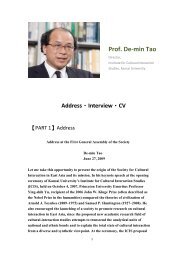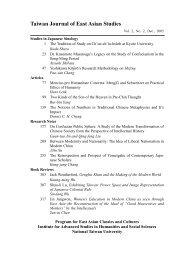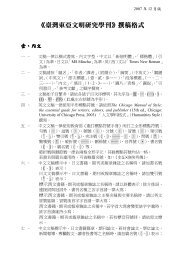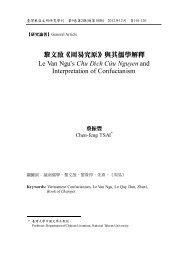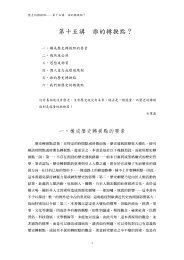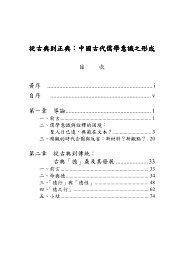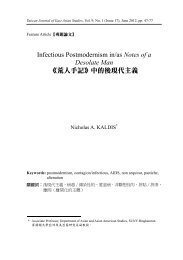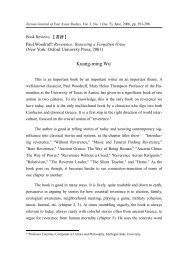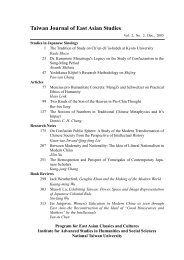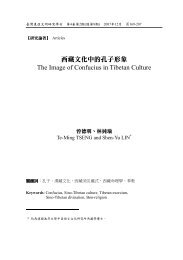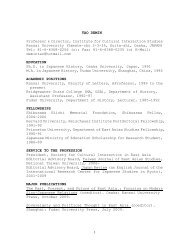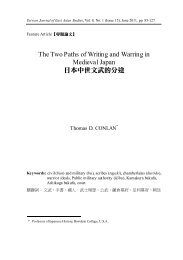臺灣東亞文明研究學刊 - 東亞經典與文化研究計畫 - 國立臺灣大學
臺灣東亞文明研究學刊 - 東亞經典與文化研究計畫 - 國立臺灣大學
臺灣東亞文明研究學刊 - 東亞經典與文化研究計畫 - 國立臺灣大學
Create successful ePaper yourself
Turn your PDF publications into a flip-book with our unique Google optimized e-Paper software.
214 Taiwan Journal of East Asian Studies, Vol. 4, No. 2 (Iss. 8), Dec., 2007<br />
European identity and he said: "Ruins are the unprepossessing but yet indispensable<br />
fundament" of Europe. 5<br />
Based on this common negative historical experience the Europeans developed<br />
the common will for peace by merging their economies and by economically and<br />
later on politically relativizing their national sovereignty.<br />
It is this awareness of a burden of the past, which is bringing about a new<br />
quality of historical culture in Europe. The Europeans are deeply convinced that<br />
they have to change all those attitudes of identity formation, which have led into the<br />
catastrophes of the 20th century. Let's look at the elements in concern. Among the<br />
foremost we'll find identity and the question is, whether identity can be a source of<br />
conflict, struggle and even war. The answer to this question is, of course, a clear<br />
'yes', and as you all know that is not only true for Europe, but for most if not all<br />
traditional modes of historical identity formation. The reason lie in the way<br />
traditionally historical identity is brought about in cultural processes, which follow<br />
the logic of ethnocentrism. 6 It was ethnocentrism in the form of a nationalistic<br />
conceptualization of historical identity, which contributed to the European<br />
catastrophe. Therefore in the ongoing processes of creating a future directed<br />
European historical identity we can observe strong tendencies of overcoming this<br />
ethnocentrism.<br />
5 Adolf Muschg, Was ist Europäisch? Reden für einen gastlichen Erdteil (München: C. H. Beck,<br />
2005), p. 16.<br />
6 Cf. Jörn Rüsen, "How to Overcome Ethnocentrism: Approaches to a Culture of Recognition by<br />
History in the 21st Century," Taiwan Journal of East Asian Studies, 1, 1 (June, 2004) pp. 59-74;<br />
also in History and Theory, 43 (2004), pp. 118-129; "Tradition and Identity: Theoretical<br />
Reflections and the European Example," Taiwan Journal of East Asian Studies, 1, 2, (Dec., 2004),<br />
pp. 135-158.<br />
vi



